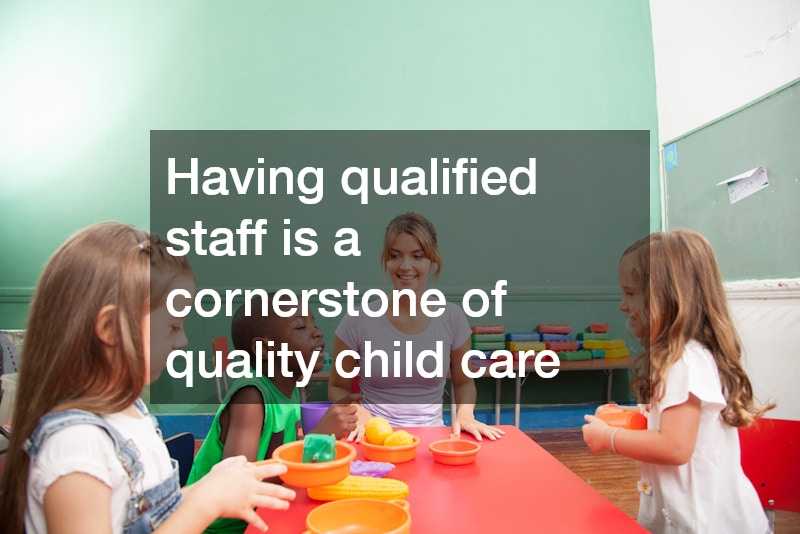In today’s fast-paced world, finding a reliable and nurturing child care center is not just a luxury but a necessity for many families. It lays the foundation for a child’s emotional, social, and educational development. This article delves into the most pressing questions and concerns parents face when seeking the right environment for their children.
A strong child care setting can often mean the difference between a thriving, well-adjusted child and one who may struggle with early life challenges. By becoming informed about what to look for, parents can ensure they are making the best decision for their little ones.
What Should Parents Look for in a Quality Child Care Center?
When evaluating a child care center, parents should consider several essential factors that define quality care. The safety measures in place are paramount; they ensure that children are protected from accidents and injuries. Staff qualifications also play a crucial role, as trained caregivers will foster an enriching and supportive environment for development. Moreover, the educational programs offered can provide critical opportunities for early learning. Each of these elements combined will aid parents in determining which center aligns best with their values and expectations.
Safety and Cleanliness Standards
Safety in child care centers is non-negotiable and begins with child-proofing the environment. This includes securing hazardous materials, ensuring there are no choking hazards, and regularly inspecting playground equipment. Cleanliness is equally important, as a sanitary environment can significantly reduce the risk of illness among children. Additionally, child care facilities should have clear emergency procedures in place, including evacuation plans and first aid measures. A center that prioritizes safety and cleanliness reflects respect and care for the well-being of every child.
Qualified and Caring Staff
Having qualified staff is a cornerstone of quality child care. Parents should inquire about the educational background and training of caregivers, as well as their experience in child development. This also includes evaluating their demeanor; nurturing caregivers who can connect with children will lead to positive experiences. Moreover, ongoing training can help staff stay updated on best practices for early childhood education. A center with dedicated and well-trained personnel should be a top priority for discerning parents.
Curriculum and Educational Methods
The curriculum offered at a child care center is vital in supporting children’s early learning. Different educational philosophies, such as Montessori, Reggio Emilia, or the HighScope approach, each present unique benefits. Parents should review how the curriculum promotes cognitive, emotional, and physical development through activities. It’s also important to examine how these programs integrate play-based learning, which encourages creativity and critical thinking. Ultimately, the goal is to choose a program that aligns with a child’s individual learning style and interests.
Why is Socialization in Child Care Crucial for Early Development?
Socialization plays a key role in early childhood development, fostering emotional and social growth. Interacting with peers helps children build essential interpersonal skills, such as communication and cooperation. In a child care setting, group activities promote a sense of belonging and help children learn how to navigate relationships. Furthermore, these interactions provide opportunities for children to engage in problem-solving and conflict resolution. While parents are fundamental in a child’s life, the social experiences offered in child care can significantly enhance their development.
Building Interpersonal Skills
Group activities and free play within a child care center are instrumental in nurturing interpersonal skills. By engaging in cooperative tasks, children learn how to share, negotiate, and work together, which are essential life skills. Such group interactions also offer a safe platform for children to express themselves and explore their emotions. Through these activities, caregivers can guide discussions around feelings and social norms, providing invaluable lessons. Ultimately, these experiences will help children as they step into school and various social settings in the future.
Emotional Support and Development
Caregivers play a vital role in providing emotional support in child care environments. They can help children understand and process their feelings during moments of frustration or disappointment. Providing a nurturing atmosphere where children feel heard and valued fosters resilience and self-esteem. Furthermore, caregivers can guide children as they encounter new experiences, providing reassurance and encouragement. This foundation of emotional support is crucial in helping children tackle challenges confidently as they grow.
How to Transition Your Child to a Child Care Center?
Transitioning a child to a child care center can be a challenging experience for both parents and the child. It is important to prepare the child emotionally for this new chapter in their life. Parents should discuss the upcoming changes, emphasizing the fun aspects, such as making new friends and participating in exciting activities. Engaging children in conversations about their feelings can help normalize any anxieties they may have. In this way, parents can provide a supportive environment that promotes a positive outlook on the transition.
Preparing Your Child Emotionally
Emotional preparation is key when helping children transition to a new child care center. Parents can use storytelling or role-playing to familiarize their children with what to expect in the new environment. Additionally, discussing emotions openly helps children articulate their feelings and cultivate emotional awareness. Providing reassurance that it is okay to feel nervous or excited can help them feel supported. Such preparation encourages children to embrace the change with curiosity rather than fear.
Choosing the right child care center is a critical decision that affects not only the immediate well-being of children but also their long-term developmental outcomes. Addressing core concerns and questions can empower parents in making informed choices that meet their child’s unique needs. In a world where quality child care is essential, understanding what to look for and the available resources can lead to a nurturing environment for growth and learning. By fostering strong communication between parents and caregivers, we can create a partnership that encourages children’s success. Ultimately, the right child care center sets the stage for a child’s lifelong journey of exploration, learning, and discovery.




